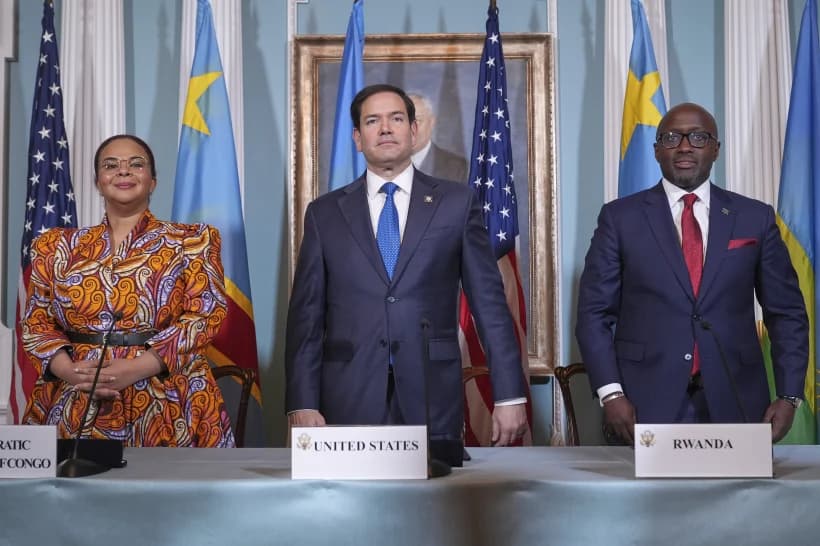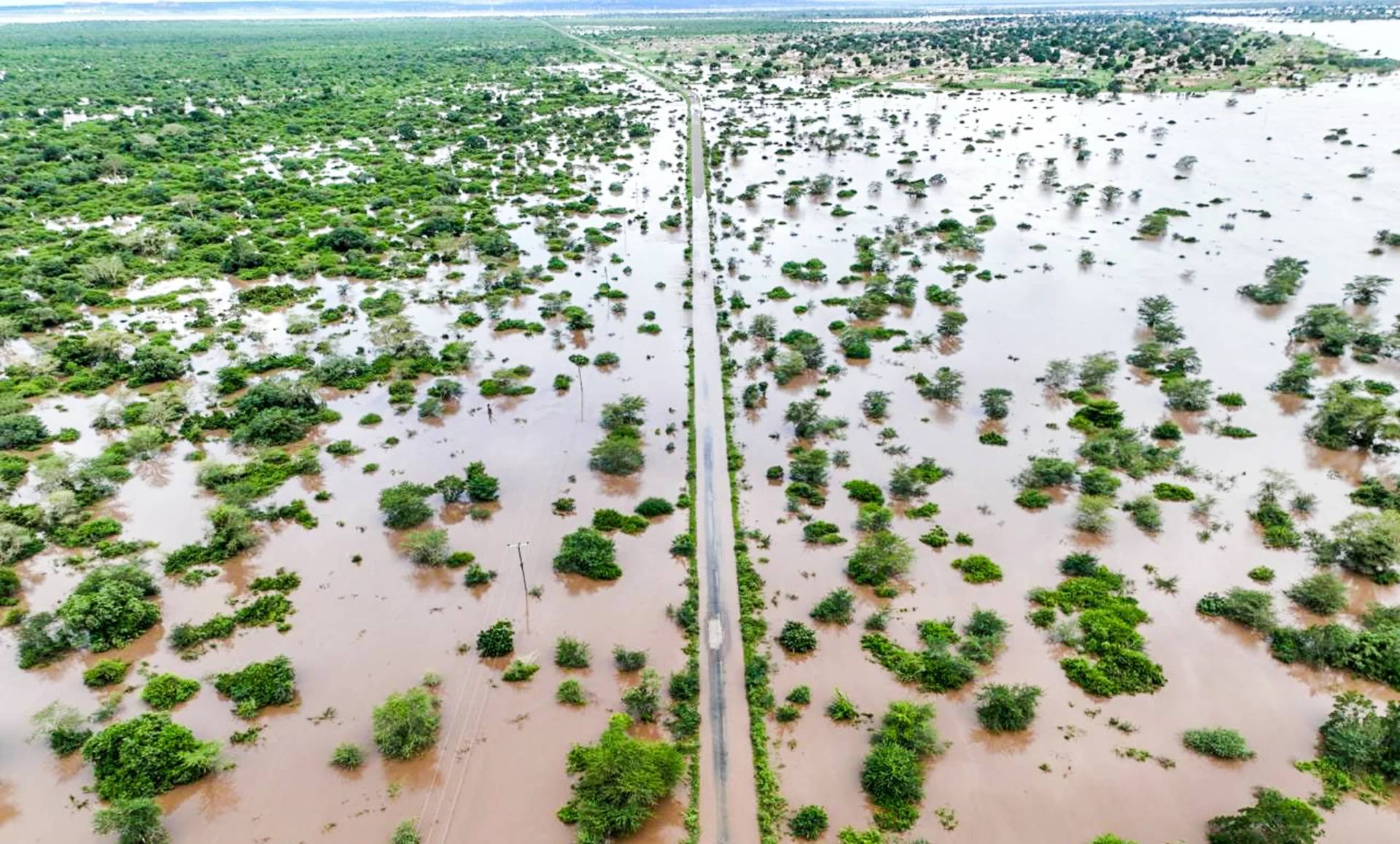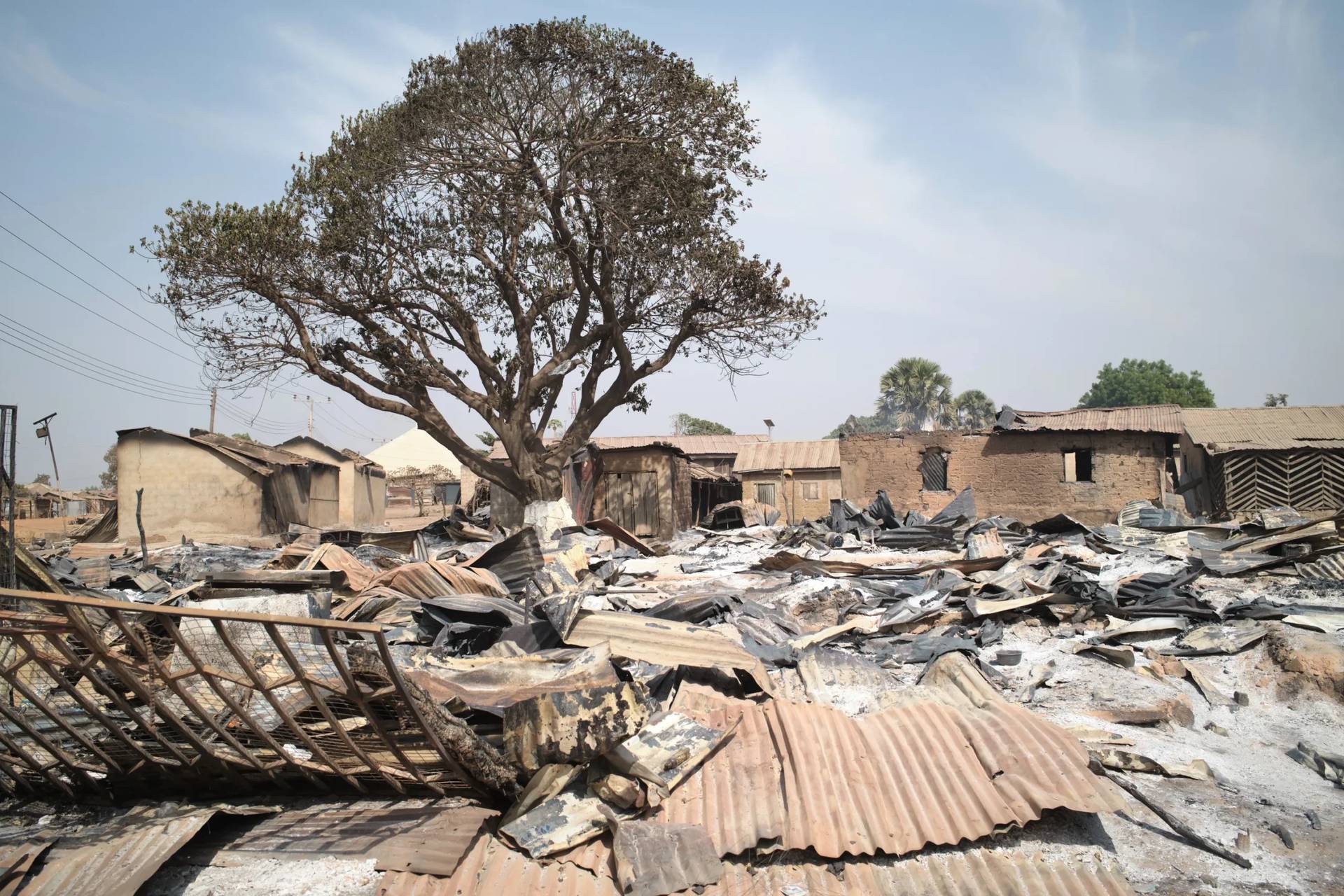YAOUNDÉ, Cameroon – Catholic bishops and Protestant pastors in the Democratic Republic of Congo (DRC) submitted what they call a “Social Pact for Peace and Living Together in the Democratic Republic of Congo” to President Felix Tshisekedi in the capital, Kinshasa.
The peace plan sent on June 21 is the result of three months of broad-based consultations that not only involved talking with the rebels wreaking havoc in the eastern part of the DRC, but also with the Congolese people both at home and abroad.
Conflict has stoked particularly eastern DRC for decades, but reached a new high in 2022 when the Rwanda-backed March 23 Movement (M23) launched an offensive, overrunning whole cities, displacing thousands and triggering loss of lives.
Amnesty International reports that by April 2024, the conflict had displaced at least 7.3 million people. Over 6 million more people have been killed since 1998, as around 120 armed groups – some of them from neighboring countries – continue to battle for control over territory and mineral resources.
Now, the churches plan to rally congregations, politicians, and local communities around the goal of ending the conflict and fostering peaceful coexistence, using the African method of conflict resolution – which involves dialogue under the palaver tree.
Monsignor Donatien N’shole, the secretary general of the Bishops’ Conference, explained that last week’s meeting had resulted in the decision to set up a working team.
As soon as it is set up, the team’s task will be to provide the necessary depth to the draft Social Pact for Peace and Living Together in the DRC and the Great Lakes region.
It will have to ‘try to plan things well for the next stages, as there are many prerequisites to be harmonized’, explained Eric Senga, ECC’s secretary general and spokesman.
“The most important thing for us is to achieve results that can help the country to be unified, pacified and reconciled,” he added.
The pact is built on five core intertwined principles, all designed to foster sustainable peace in the DRC.
First, it seeks to restore the sociological and spiritual values of “Bubuntu” – which is described as the ontological foundation of African identity and emphasizes social cohesion and the rejection of violence and exclusion. This principle aims to rebuild a sense of shared humanity and community within Congolese society.
Second, it seeks to resolve conflicts through dialogue, emphasizing the importance of peaceful conflict resolution, addressing the underlying causes of conflict, and promoting consensus-building as alternatives to violence.
Third, it recognizes the diversity of the DRC and the Great Lakes Region and seeks to leverage this diversity to build a more united and resilient society, rather than allowing it to become a source of division and conflict.
In addition, the pact seeks to convince political leaders to end armed conflicts, promote sustainable development and limit the exploitation of natural resources; encouraging sincere international support for justice, peace and environmental sustainability.
“This initiative needs to be encouraged because it seeks to foster engagement through its inclusive nature. While born of the Catholic Church, it also encompasses other religious confessions that hold significant representation in the DRC, “said the Director of Communications of Caritas Butembo-Beni, Elie Mbulegheti, in an interview with Crux.
“It’s truly timely that this has occurred, considering the M23 rebels’ four-year domination of North Kivu and their growing presence in South Kivu,” he added.
He further noted that the Pact and the discussions around it was coming at a time when a US-brokered deal was being signed between Rwanda and the DRC.
The foreign ministers of the two countries signed the peace deal on June 27 in Washington, brokered by the United States.
The deal demands the “disengagement, disarmament and conditional integration” of armed groups fighting in eastern DR Congo, but it will also give the US access to Congo’s critical minerals-a reality that has been criticized as another deal aimed at exploiting the country’s wealth for the benefit of the US at the detriment of the people of the DRC.
Details are scant, however. Previous deals brokered by countries like Qatar, Angola, and Kenya all failed, but that has not deterred the U.S. and Congolese presidents from framing this as a generational victory.
“Today, the violence and destruction comes to an end, and the entire region begins a new chapter of hope and opportunity,” said U.S. President Donald Trump.
Mbulegheti said the peace deal paves the way for a future meeting between President Felix Tshisekedi and Rwandan President Paul Kagame on a date that still has to be fixed.
Still, the Church-triggered Social Pact for Peace and Living Together in the DRC will have to be implemented, if sustainable peace has to return to the war-ravaged country. It’s a case made more forcefully by the Director of the Diocesan Commission for Justice and Peace (CDJP) of the country’s Catholic Diocese of Butembo-Beni, Father Aurélien Kambale Rukwata during a June 10 press Conference.
“The activities and behaviors of politicians in the Democratic Republic of Congo clearly prove that the Social Pact for Peace and Harmonious Coexistence remains the best solution in resolving the security and sociopolitical crises in the country,” the priest said.
Mbulegheti said he believes that whenever a more sustainable peace agreement is signed-one that restores peace to the east of the country; it will still be incumbent on the Churches to propose an economic model that is not only sustainable, but also just.
“These models could help communities recovering from war and humanitarian crises in the East gain self-sufficiency and move past their suffering. There’s also the vital dimension of justice… I strongly feel that any signed agreements must ensure justice for all war victims, as forgetting them would only perpetuate the cycles of impunity fueling Congo’s violence,” he told Crux.












